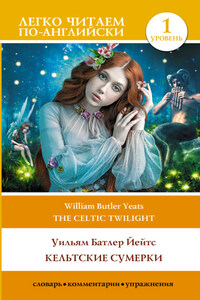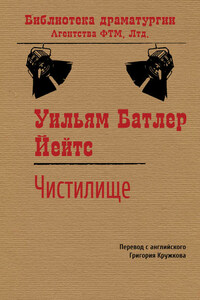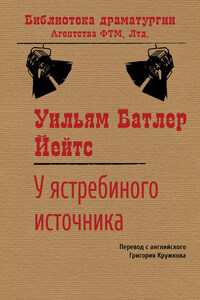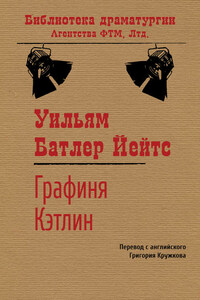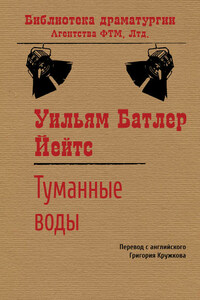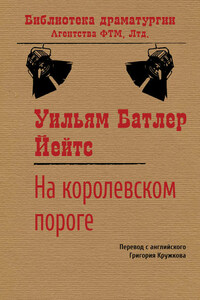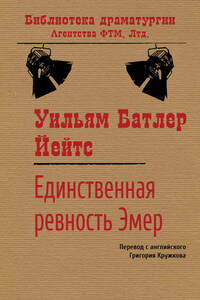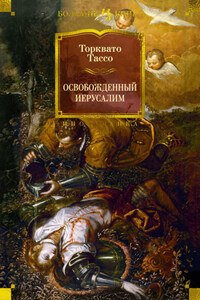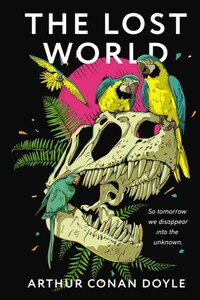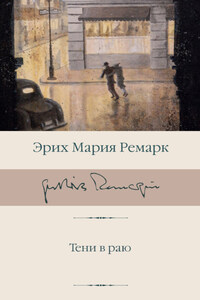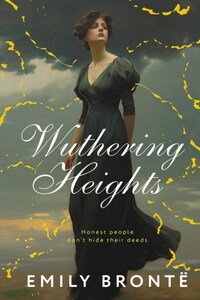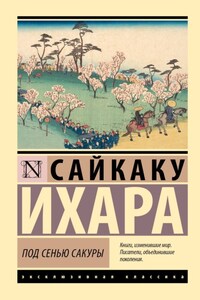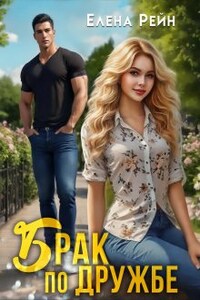Дизайн обложки Анастасии Орловой
© Кузнецова М. М., адаптация, словарь, 2023
© ООО «Издательство АСТ», 2023
* * *
THE HOSTING OF THE SIDHE[1]
The host is riding from
Knocknarea[2],
And over the grave of
Clooth-na-bare[3];
Caolte[4] tossing his burning hair,
And
Niamh[5] calling, “Away, come away;
Empty your heart of its mortal dream.
The winds awaken, the leaves spin around,
Our cheeks are pale, our
hair is unbound[6],
Our chests are moving, our eyes are shining,
Our arms are waving, our lips are apart,
And if anyone looks at our rushing band,
We come between him and the
deed[7] of his hand,
We come between him and the hope of his heart.”
The host is rushing between night and day;
And where is there hope or deed as fair?
Caolte tossing his burning hair,
And Niamh calling, “Away, come away.”
Time drops in decay
Like a candle burnt out.
And the mountains and woods
Have their day, have their day;
But, kindly old rout
Of the fire-born moods,
You pass not away.
I wanted to create a small world from the beautiful and meaningful things in this imperfect[8] world, and to show a little piece of Ireland to my own people. I have written down what I have heard and seen. I haven’t separated my beliefs from those of the common people. I have let my characters, including ghosts and fairies, go their own way. The things a person experiences are life’s memories, and anyone can interpret[9] them as they please. I have also interpreted them in my own way, but I will be happy as long as my interpretation suits me.
Paddy Flynn told me many of the tales in this book. He lived in a small and leaky[10] cabin in Ballisodare[11] village. He described it as the most peaceful place in County Sligo. This place is filled with fairies. The first time I saw him, he was cooking mushrooms. The next time, he was sleeping under a hedge[12] with a smile on his face. He was always happy. But I could sense a hint of sadness in his eyes.
And yet there was much in his life to depress[13] him, for his age, eccentricity, and deafness, and the children were constantly bothering him. Probably that’s why he always advised to be happy and hope for the best.
I wrote down Paddy Flynn’s stories and words in my notebook after meeting him. I feel sad looking at the empty pages at the end that will never be filled. Paddy Flynn passed away[14]. A friend of mine gave him a big bottle of whiskey, and even though he was usually not a heavy drinker[15], he got really excited from this gift, and he didn’t stop drinking for a few days until he passed away. His body was tired from old age and difficult times, and it couldn’t handle the alcohol like it did when he was young.
Some people in the western villages have doubts. Last Christmas, a woman told me that she didn’t believe in hell or ghosts. She thought that hell was made up by the priest[16] to make people behave, and she didn’t think ghosts could freely walk the earth. But she believed in fairies, leprechauns[17], kelpies[18], and fallen angels. I also met a man with a tattoo of a Mohawk Indian on his arm who had similar beliefs and doubts. He said that people never doubt that fairies are real.
A young girl who worked in the village of Grange, near the slopes of Ben Bulben[19],disappeared one night around three years ago. People said that the fairies had stolen her.
A village resident tried to stop them from taking her. But he ended up with nothing in his hands except a broomstick[20]. The villagers asked the constable[21] for help, and he immediately started searching every house. He also advised the villagers to burn all the ragweed[22] on the field where the girl disappeared because ragweed is sacred[23] to the fairies. They spent the whole night burning the ragweed while the constable said special words. In the morning, they found the little girl walking in the field. She said that the fairies had taken her very far away, riding on a magical horse. Eventually, she saw a big river, and the man who tried to save her was floating down the river in a small boat.
Long ago in stories, men were taken away to assist the gods in a battle. Cuchullan[25] helped the goddess Fand’s[26] to defeat another nation and gained her favor. I’ve also heard that the fairies folk can’t even play their game called hurley[27] unless they have a mortal on each team. Without the help of mortals, the fairies folk are weak and cannot even hit the balls. One day, me and my friend were walking on some marshy[28] land in Galway when we saw an old, tough-looking man digging a ditch. My friend had heard that this man had seen something amazing. And eventually we get this story from him. When he was a young boy, he was working with around thirty other men, women, and boys. They were near Tuam[29], not too far from Knock-na-gur. Suddenly, they all saw about one hundred and fifty fairies folk from a distance of around half a mile. There were two of them, he said, in dark clothes like people of our own time, who stood about a hundred yards from one another. The others wore colorful clothes.
